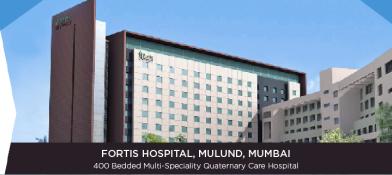Colonoscopy
What is Colonoscopy
A colonoscopy refers to a procedure that permits a healthcare provider to examine the inside of the entire colon (large intestine). The procedure involves utilizing a long, flexible tube known as a colonoscope. The tube has a light and a miniscule camera on one end. It is put in the rectum and moved into the colon.
In addition to allowing healthcare providers to glance at the inside of the colon, the tube can be utilized to: Cleanse the colon lining utilising irrigation (a water jet), Take out any liquid stool with a suction device, inject air into the bowel to make it easier to peep inside and Work inside the bowel with surgical tools.
During a colonoscopy, healthcare provider may excise tissue/polyps (abnormal growths) for further assessment. He/she may also be able to treat problems that are found.
Need of a colonoscopy
Colonoscopy can aid healthcare provider look for problems in colon. These comprise any early indications of cancer, inflamed (red or swollen) tissue, ulcers (open sores) as well as bleeding.
Cancer Screening
Colonoscopy is also utilized to screen for colon cancer as well as rectal cancer. Screening comprises looking for cancer in individuals who do not have any manifestations of the disease.
Colonoscopy can also be utilised to assess the colon post cancer treatment.
Checking and Treating Problems
A colonoscopy may be utilized to assess and, if required, treat problems like:
- Small growth of tissue inside the colon/large intestine (colon polyp)
- Tumors
- Shallow sores or Ulcerations
- Inflammation
- Diverticula (pouches) along the colon wall
- Narrowed areas (strictures) of the colon.
- Any entities that might be in the colon
Risks of a colonoscopy
As in the case of any invasive procedure, complications may occur. Complications related to colonoscopy comprise, but are not restricted to, the following:
- Continued bleeding post biopsy (tissue sample) or polyp removal
- Nausea, vomiting, bloating, or irritation of rectum caused by the preparatory bowel cleansing or procedure.
- An unpleasant reaction to the pain medication or the sedative (medicine utilised to offer a relaxing, calming effect)
- A hole in the intestinal wall, which is an unusual complication.
- It may also be utilised to find the cause of unexplained, long-term diarrhoea or bleeding in the gastrointestinal (GI) tract.
How to get ready for a colonoscopy?
Healthcare providers will explain the procedure thoroughly and answer any questions. Prior to the test, people will be asked to sign a consent form. Individuals should read the form carefully and ask any questions they may have.
Dietary Instructions
Individuals must not consume food items or drink liquids for a specified duration of time prior to the procedure. This generally means no food or drink post-midnight or a circumscribed schedule with the laxative as well as water sips permitted until a couple of hours prior to the colonoscopy. Individual may be provided additional instructions regarding a special diet to follow for one or two days prior to the procedure. It is mandatory to follow instructions carefully to avoid cancellation and to make sure a safe, practical test.
Notifications for Doctor
Prior to colonoscopy, individual should inform healthcare provider:
- If an individual is sensitive or allergic to any medications, latex, tape, or anaesthesia medications (local as well as general).
- About all the medications an individual takes, comprising over-the-counter drugs, prescription medications, vitamins, herbs, and other supplements.
- A history of bleeding disorders
- If individual is pregnant or think may be pregnant
Bowel Preparation
Health care providers will provide instructions on how to prepare bowels for the test. Individual may be asked to take a laxative, an enema, or a rectal laxative suppository. Or individual may have to drink a special fluid that aids clean out colon.
Medications Before and After the Procedure
If individuals are taking any blood-thinning medications, aspirin, ibuprofen or other medicines that impact blood clotting, they may need to be stopped prior to the procedure. If individual is suffering from a heart valve disease, he/she may be given disease-fighting antibiotics prior to the procedure.
Prior to the procedure, individual will be given pain medicine and a sedative. Post the procedure, someone must drive him/her home.
What happens during a colonoscopy?
Individual may have a colonoscopy in an outpatient setting or as part of his/her stay in a hospital. The way the test is done may differ based on individual's condition and health care provider's practices.
Generally, the colonoscopy follows this process:
Individual will be asked to take out any jewellery or other entities that might get in the way during the procedure. Individual may be asked to take out clothing and dress up in a hospital gown. An intravenous (IV) line will be put into his/her arm or hand. A sedative or a pain medication will be injected into the IV. Individual will be given oxygen to breathe.
Individual's heart rate, blood pressure, respiratory rate, and level of oxygen will be checked during the procedure. Person will be asked to lie on his/her left side with knees pulled up towards chest. A lubricated tube will be put into the anus and moved into the rectum as well as colon. A person may feel mild pain, pressure, or cramping during the procedure. A sedative is utilised to decrease discomfort.
Depending on the anesthesia used, an individual may be completely asleep during the procedure. If awake, the individual may be advised to take easy, deep breaths while the tube is being placed. This aids in relaxing the abdominal muscles and lessening discomfort. Individuals may also be asked to alter their position to aid the tube's passage.
Air may be injected into an individual's bowel, making it easier to examine the inside surfaces. A water jet may also be utilised to clean the lining of the colon, and a suction device may be utilised to remove any liquid stool.
The health care provider will check individual's colon and may take pictures. If a polyp is seen, it may be removed, or it may be left in the colon until a future procedure is performed. Post the procedure is over, the tube will be taken out.
After Colonoscopy
The person will be taken to the recovery room to be monitored. The process of recovery will rely on the type of sedative he/she was given. Once the individual's vitals, such as blood pressure, pulse, as well as breathing, are stable and he/she is awake and alert, he/she will be taken to his/her hospital room. Or he/she may be discharged to his/her home.
Person can usually eat whatever he/she can tolerate post the procedure. Some people commence with small, bland meals. It is normal to pass gas as well as experience gas pains post the procedure. Walking as well as moving around may aid to ease any mild pain.
People should avoid alcohol consumption for at least 24 hours. A person may be asked to drink extra fluids to compensate for the water lost as they prepare for the procedure.
In a nutshell, colonoscopy refers to a procedure that requires a certain type of prep and utilises a flexible tube to glance inside the colon and rectum.































